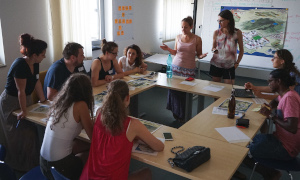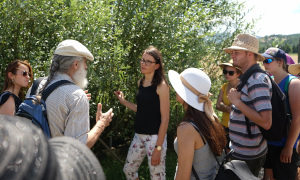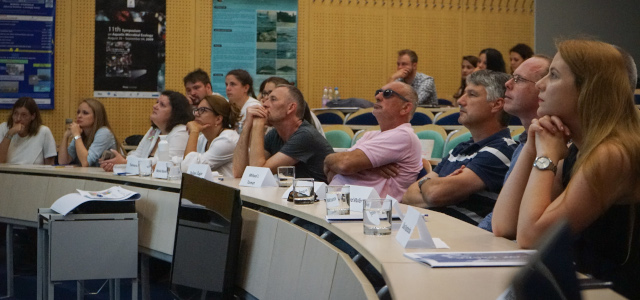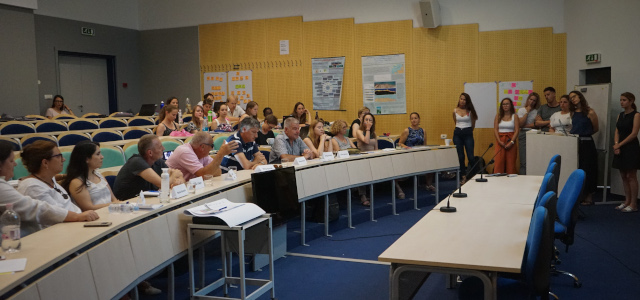Jointly organized by Global Water Partnership Central and Eastern Europe (GWP CEE), University of Ljubljana (UL), Zurich University of Applied Sciences (ZHAW) and COST Action Circular City, the Summer School focused on the concepts for ecological water management in water-scarce areas. It provided a multi-layered programme that aimed to bridge theoretical knowledge, practical issues and links to policies in water resource management. The Summer school brought together thirty-four young water professionals - MSc and PhD students from 14 countries (Armenia, Bulgaria, Estonia, Germany, Hungary, Poland, Moldova, Serbia, Slovakia, Slovenia, Spain, Switzerland, Ukraine and Turkey) with diverse background ranging from natural sciences, geography, engineering, to environmental law and social science.
Thematic focus
The participants had the chance to learn more about the socio-economical, technical, environmental and health risk aspects of decentralized wastewater treatment systems, ecological sanitation methods, as well as integrated water resources management, water governance processes and stakeholder engagement. Focusing on re-use of resources (water, nutrients) by recycling wastewater, the participants explored the best ways, which lead to the sustainable management of resources, especially in the tourist areas with high demands (resources, legislation) while addressing environmental and health risks. Guest lecturers from ten different institutions, organizations and universities were guiding the students through the topics, bringing current knowledge and different approaches, which contributed greatly to the diversity of the Summer School.
Methodology
Applying the innovative Problem-Based Learning methodology provided the  participants with a structure for discovery that helped them internalize learning and led to greater comprehension. The methodology helps the students to acquire competences related to autonomy, initiative, flexibility, confidence, responsibility and other skills needed to become the best generation of professionals in a sustainable water sector.
participants with a structure for discovery that helped them internalize learning and led to greater comprehension. The methodology helps the students to acquire competences related to autonomy, initiative, flexibility, confidence, responsibility and other skills needed to become the best generation of professionals in a sustainable water sector.
It was combined with hands-on activities, during which the students had the chance to visit several resort facilities in Piran, where they had access to data and could observe the processes of managing wastewater. Based on the information gathered, they were given an asignment, which was to suggest solutions for the different challenges they have observed. Provided with practical knowledge on the tools and methodologies how to structure ideas for sustainable cities into a project, the participants had to design a new concept for sustainable resort for the future generation of travellers.
 During the ten-day course, field trips to Sečovlje Saltworks, Dragonja river landfill, Ajdovščina wastewater treatment plant and Škocjanske caves were organized to demonstrate the successful implementation of different green technologies and innovative approaches.
During the ten-day course, field trips to Sečovlje Saltworks, Dragonja river landfill, Ajdovščina wastewater treatment plant and Škocjanske caves were organized to demonstrate the successful implementation of different green technologies and innovative approaches.
Bridging science and policy
The ten-day work of the participants on desiging new concepts culminated during the Stakeholder dialogue organized on the last day, when the participants presented their solutions in front of different stakeholders coming from ministries, municipalities, private sector, water utilities, academia and intergovernmental organizations. The innovative solutions of the participants sparked a lively and fruitful debate between the youth and the decision-makers. Continuing the initiative from previous Summer schools to try to brigde science with policy, this Stakeholder dialogue was an important part of the Summer School, as it provided insights into the thinking of both youth and decision-makers. All participants in the dialogue agreed that there is a clear need not only for a better communication between research and policy, but also for more intergenerational dialogues and exchange.

